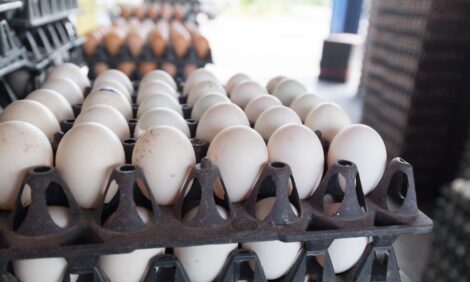



Foods United rebrands as LIVEKINDLY, raises $200 million to invest in plant-based chicken substitutes
Foods United has bought plant-based digital media platform LIVEKINDLY and rebranded as The LIVEKINDLY Co as it moves to capitalise on the trend for vegan meat alternatives, for which it has already raised $200 million in capital.The group, which is backed by Swiss investment firm Blue Horizon, said it would use the funds - raised from 10 to 15 investors including its founders, entrepreneurs and family offices - largely to develop chicken substitutes.
It plans to build a platform by buying majority stakes in plant-based firms and hooking them up with production and distribution partners.
The new firm has already acquired a majority stake in South Africa's The Fry Family Food Co, it said, a majority holding in German firm LikeMeat, and a stake in plant-based ingredient maker Puris.
Plant-based meat substitutes are growing quickly as many consumers cut meat consumption on health, environmental or animal welfare grounds.
"Today, an entrepreneur can try to go it alone or sell to a big company or private equity. We want to offer our LIVEKINDLY platform as a third option," Bjoern Witte, managing partner at Blue Horizon, told Reuters.
"What differentiates us is that we partner with established meat industry players to get access to their knowhow, infrastructure and capex to use it for plant-based food," he said.
LIVEKINDLY is working with poultry groups like Germany's PHW Group and South Africa's RCL Foods to help companies such as LikeMeat and Fry's with production and distribution.
"We also signed with a partner in Asia, (and) two are about to sign in the U.S. We should have five partners by the end of the year," Witte said, adding at least two or three acquisitions were also in the pipeline.
Blue Horizon, founded in 2015 to invest in plant-based foods, is LIVEKINDLY's controlling shareholder. Former Unilever executive Kees Kruythoff is its chairman and chief executive.
U.S. grocery sales of plant-based foods that directly replace animal products grew 11 percent to $5 billion last year, including $939 million for plant-based meat alternatives, data published last week by the Good Food Institute showed.
Plant-based burger patties have already been developed by companies like Beyond Meat, Impossible Foods and Nestle .
In the U.S. market, per-capita consumption of chicken stood at 93.8 pounds in 2018, almost double beef consumption, according to the U.S. Department of Agriculture.
Beyond Meat, which last month posted a 212 percent jump in fourth-quarter sales, said in January it would supply plant-based "fried chicken" to fast-food chain KFC.









